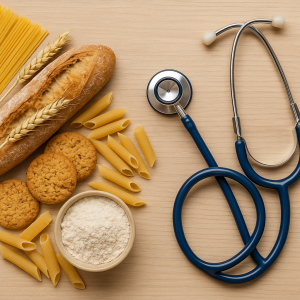 Many people do not know much about vitamin K, however this is not a common knowledge of its vital importance for good health. Let’s begin with a summary of what vitamin K does inside our organisms and the importance of this micronutrient.
Many people do not know much about vitamin K, however this is not a common knowledge of its vital importance for good health. Let’s begin with a summary of what vitamin K does inside our organisms and the importance of this micronutrient.
What Vitamin K Does
It has various functions of which not all are well understood. Most notably, it helps with:
– Blood Clotting: Vitamin K is the fundamental vitamin that fosters blood clotting process in injured individuals that stops bleeding. It is the leading cause of polygenic disorders. It stimulates the production of proteins that are involved in blood clot formation. Lack of Vitamin K would lead to uncontrolled bleeding from even smallest of the minor cuts.
Article continued below
– Bone Health: Vitamin K helps the body bond with the calcium which is important for construction of bones. These nutrients, vitamins D and A, also play a crucial role in the development and maintenance of strong, dense bones all by life. Moreover as vitamin K deficiency may cause the risk of bone fractures.
– Heart Health: Recently, scientists found that this vitamin may be helpful in preventing arterial calcification that is a very high indicator of cardiovascular disease (CVD). In addition to this, it has been observed that it can also help to ensure that the blood pressure remains as normal as possible in the first place.
Sources of Vitamin K
There are generally two main forms of vitamin K we get from foods:
– K1 (phylloquinone) is unique in veggies like kale, spinach, collards, Brussels sprouts and broccoli. All that are vegetable oils and some fruits as well contain it.
– The K2 (menaquinone) form of such nutrient is available in animal-based and fermented foods, including meat, eggs, dairy products, and fermented natto soybean products.
The recommended daily intakes (RDI) for adults is 90–120 micrograms of vitamin K, which is not considered to be a high amount. Vitamin K and the green fast food is an essential for a normal body functioning.
Conclusion
Nowadays it is vitally important to have sufficient dietary vitamin K intake which is beneficial for the body in several ways like aiding proper wound healing, keeping bones strong, and potentially preventing heart diseases. We should work towards eating leafy greens and veggies daily, dairy and meat regularly, in order to get enough of this crucial vitamin.






